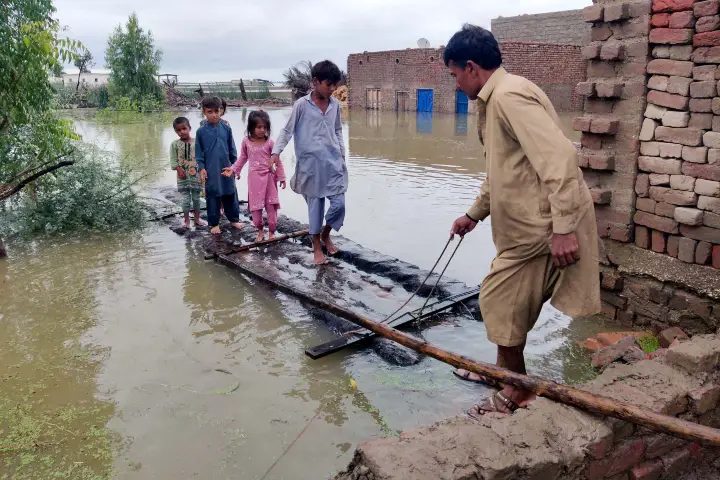Massive destruction of crops in Pakistan due to the torrential rains and floods has already started impacting the country’s food sector. Prices of food items have surged and supply chain has been disrupted leaving many hungry. The heavy rains, which show no signs of receding, have damaged large swathes of crops which include paddy, maize, tomatoes among others. Cotton, a critical cash crop in the country, has also been severely damaged. Weather reports indicate that rains could continue in September as well.
Output of both main and minor Kharif crops will be impacted, the finance ministry’s economic adviser’s wing in its monthly economic report for August said. An assessment exercise of the exact impact of crop damages is underway.
The excessive damage of crops has already led to rising concerns over food security. Pakistan is now even looking at importing onions and tomatoes from India.
“Pakistan is cash starved and now the floods have caused havoc and while aids are pouring in, the impact on the country’s economy will be significant as it has little elbow room to expand its expenses,” an analyst with a research outfit told India Narrative.
For the week ended August 25, Pakistan’s weekly inflation touched a record high of 44.58 per cent year-on-year driven by rising prices for 23 essential items which include vegetables, rice, eggs and pulses among other things. In the previous week it was 42.3 per cent.
The country’s Finance Minister Miftah Ismail said that the losses incurred from the floods could stand at around $10 billion. The deadly floods have left more than 1,000 people dead and lakhs displaced.
Yesterday, the prices of onions and tomatoes in Lahore touched (Pakistani) Rs 400 and Rs 500 per kilogram respectively. However, the prices of the same in the Sunday markets were cheaper by about (Pakistani) Rs 100 per kilo.
According to Pakistan based newspaper Dawn, Aamer Hayat Bhandara, co-founder of the Agriculture Republic, a think-tank, rains have hit the farmers “at a time when Kharif crops were at the flowering stage.”
The steady increase of fuel prices by the Shehbaz Sharif government has already led to higher inflationary trends. The massive losses due to the floods will add to the problem.
Meanwhile, the International Monetary Fund’s (IMF) executive board will hold a meeting today to decide on Pakistan’s bailout package. The early disbursement of the financial assistance is now crucial. “Talks have gone for many months but time is running out for Islamabad,” the analyst said.
Also read: IMF board to meet tomorrow to discuss Pakistan’s bailout package
Cash strapped Pakistan now set to get Saudi, IMF assistance by month-end




















